Synopsis:
An accident brought Rex’s career as an interplanetary bodyguard to an abrupt end. Now, he spends his time tending fruit trees and dreaming of his exciting past. One day, he gets an unexpected opportunity to pick up a ray gun again, but things aren’t how he remembered them…
Review:
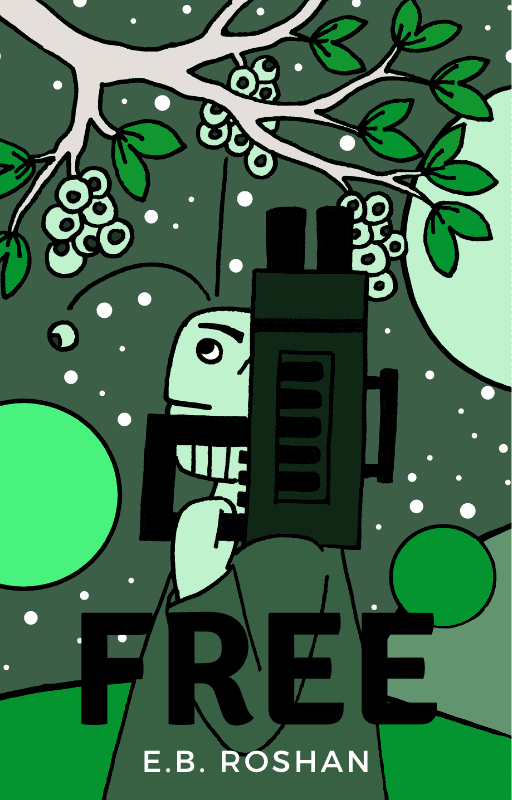
A middle-grade indie graphic novel with an ambitious storyline, Free by E.B. Roshan offers something for readers of all ages. Rex is a fruit picker who’s a little surly about his circumstances, and by the end of the first act, we find out he had been a warrior who lost his leg in a space battle.
He longs to return to the stars and a life he thinks is much more worthwhile than picking fruit on a remote moon. When the fruit farm’s very feudal overlord shows up for their dues, he gets his chance.
Free is a black-and-white graphic novel that uses many shades of gray, and it’s a considered choice for this story. The somewhat simplistic art style – Roshan deploys a thick, wormy line within very static panels – contrasts with a weighty storyline. Class politics, personal responsibility, and hints of PTSD crop up along with standard – and fun – scifi tropes like flying saucers.
Rex wants to be free from his moribund life, and he gets his freedom, or so it appears. Quickly – very quickly – he becomes an enforcer for Sir Sarpedon. Rex seems a little too ok with pushing around farmers for their dues for this lord he just met, but he draws the line at Sarpedon being rude to a waitress.
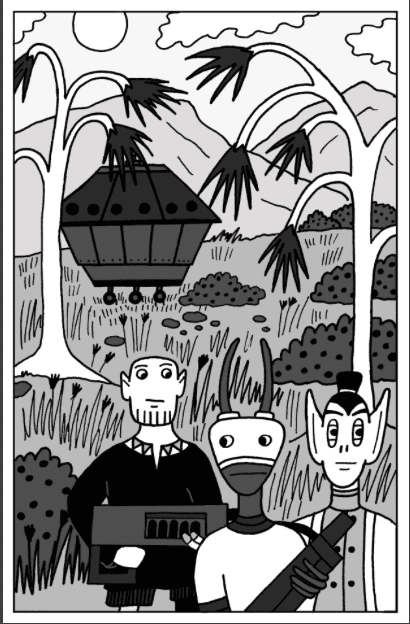
In fairness, she reminds him of a friend he left behind, but Rex isn’t exactly a paragon of virtue. Not that he needs to be. Morally ambiguous characters work just fine in children’s books, whether it’s The Grinch or Ebenezer Scrooge. Rex certainly doesn’t go that far, but he’s not perfect. For young readers, there’s a strong moral within the story that never gets too heavy-handed, and a worthwhile arc for Rex.
Though the story offers some interesting dynamics, the art and general layout do not. Panel to panel, the pages feel boxy and hemmed in at times, closing the iris on what is otherwise a very big sci-fi canvas. The art also lacks depth of field or a sense of perspective. For younger readers, this may not be significant, but for many, the reading experience is likely to be flat.
At 125 pages, the story is a quick, easy read for its audience. Things wrap up in a hurry without too much development, but there’s a lot lurking under the surface that Roshan does a good job of suggesting. Rex’s thoughts of the farm, his friend there, and his trauma manifest in panels that impose on his current circumstances. His future is also hinted at, with the possibility of further adventures down the road.




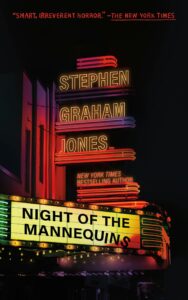
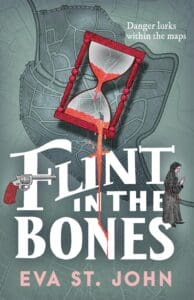
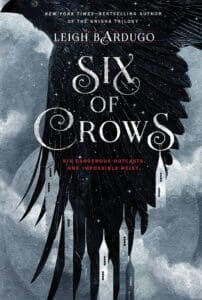
Leave a Reply